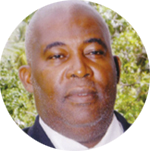
WELCOME students to the Open School for the first term for the academic or school year 2022 to 2023. The school is open to parents, guardians, teachers, students and members of the public. It is my hope that students will acquire knowledge and skills which will enable them to gain a better understanding of how children or students learn.
Today’s lesson is the final in the series on “How Children Learn.” A continuation of the third lesson. At the end of the lesson, students will be able to (a) Explain in a simple sentence the phrase “individual differences” (b) Name two ways in which the learner could be motivated.
In the last lesson, we learnt that teachers and facilitators of learning must aim to help the learner to understand rather than memorize; how teachers and facilitators of learning could help learners to transfer knowledge; and that teachers and facilitators of learning should emphasize and engage learners in practice. I mean a lot of practice!
We also learnt that learning is better when the material to be taught is organized around general principles and explanations, rather than when it is based on the memorization of isolated facts and procedures.
It was also brought to our attention that memorization has its place in the learning process and should not be denounced completely.
We also reflected on learning as a complex cognitive activity or intellectual process involving thinking, reasoning or remembering.
In addition, we learnt that teachers or facilitators of learning should increase the amount of time spend on learning in the classroom, and that the teacher should find creative ways of enabling students to spend more time on exercises relating to concepts which have been taught.
Finally, we learnt that as far as possible, teachers should give learning tasks which are consistent with what they already know.
In today’s lesson, we will learn that children learn best when their individual difference are taken into consideration.
We will also learn that teachers or facilitators of learning can help students become more motivated learners by their behaviour and the statements they make.
Classroom teachers have the arduous task of ensuring that all student learners understand and are assimilating the information being taught, not-withstanding that every child in the classroom is different.
Indeed, no two persons are exactly alike. Not even identical twins! That also pertains to student learners. Therefore, the class teacher has to plan the instruction in such a way that the developmental and individual differences of the students are taken into consideration, since children learn best when their individual differences are catered for. When you think deeply about it, what is reflected is a mammoth task.
Research shows that there are major developmental differences in learning. And a trained teacher would know that.
When I was in mainstream education, there was a lot of discussion amongst educational administrators at the Ministerial level to ensure that teachers who are appointed to the teaching services should have received a level of training before they are exposed to the classroom. To be honest, I don’t know whether they have been able to achieve that.
In the Israeli education system, one must attain a first degree in education to be appointed to the teaching service. But can we achieve that in St. Lucia?
In other words, the Israelis want to ensure that the best environment for children to learn is achieved.
The following are a few recommendations for creating the best environment for the development of children, while recognizing their individual differences:
Teachers or facilitators of learning must learn how to assess children’s knowledge, strategies and styles of learning adequately.
Teachers and facilitators of learning should introduce children or learners to a wide range of materials, activities, and learning tasks that include language, mathematics, sciences, art, music and spirituality. By spirituality I mean the belief that there is something greater than themselves, something more to being human than sensory experience, and that the greater whole of which they are a part.
It is my belief that many of our children lack that important aspect of learning. That knowledge of God. I do not mean that they should just know the word ‘God’ but to have a deep understanding of His existence as the creator of life and knowledge, and that He is the Almighty.
Learning is critically influenced by learner motivation. And the teacher or facilitators of learning can help students become more motivated learners by their behaviour and statements that they make.
In education we often use the term vicarious learning. It means that the students learn from what they see in the classroom or outside of it.
It is important that teachers or facilitators of learning encourage students by recognizing their accomplishments.
As a teacher on training at the then St. Lucia Teachers’ College, I did Art with the now deceased Hon. Dunstan St. Omer. When he came around the students doing their art, he would say: “This a beautiful; this is fantastic; oh boy you did that!” And as a student you felt good!
Teachers and facilitators of learning should always help students believe in themselves by pointing out that they are putting a lot of effort on Maths or English or Science whatever the case may be.
Provide feedback to children or learners about their work and strategies that they can use to improve their work or performance.
Now two questions for you: (a) Explain in a simple sentence the phrase “individual differences” (b) Name two ways in which the learner could be motivated.





